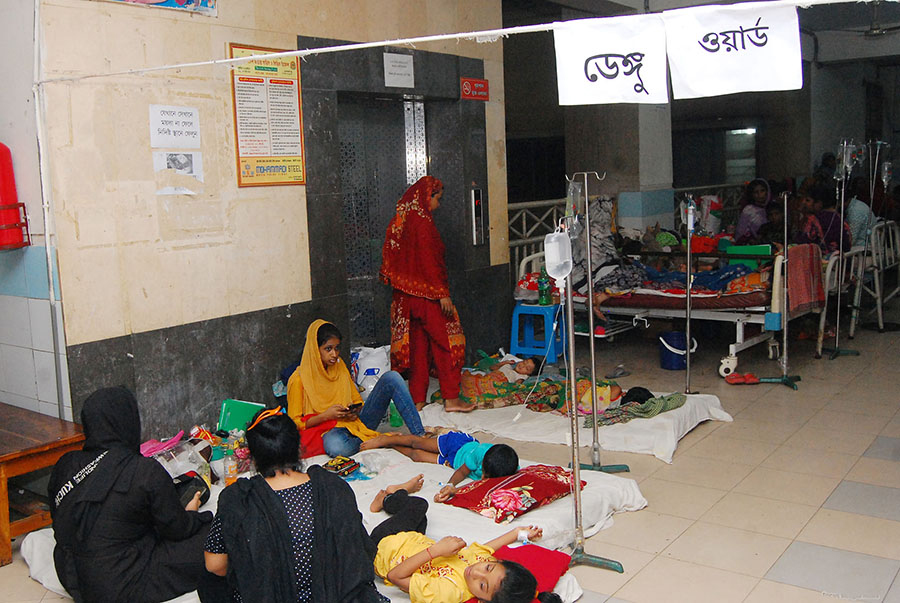
Published :
Updated :

For the vast majority of the populace, the worst thing to happen to a family is detection of and treatment of a serious ailment of a loved one. This is when things go downhill financially. The fact is that health screening requires certain medical tests to be done on a periodic basis for people when a certain age is reached. Unfortunately for most citizens, going to the doctor and having tests done are the last two things on their minds. The fear of going to doctors or visiting hospitals is natural as the 'out-of-pocket' expenditure is very high. A close associate recently visited one of the major private hospitals in the city to treat his son aged 14 suffering from dengue. The doctor's consultation fee was Tk9,000 and he got frightened by treatment regime proposed by the hospital and its specialist. Ultimately, this gentleman took alternative medicine treatment from someone who is trained in Ayurvedic medicine from India and his total out-of-pocket expenditure including consultation fee and medication was less than Tk2,000. The point here is that Bangladeshi citizens are left to their own devices when it comes to medical treatment and this is largely due to the fact that there is no culture of institutional medical insurance coverage in the country.
Studies on the health sector, done both domestically and internationally including the World Bank states that although the global average out-of-pocket expenditure is 32 per cent, patients in Bangladesh pay 74 per cent of the cost of health care from own funds. Out of this, 63 per cent is spent on medication. According to the World Health Organisation (WHO) Global Health Expenditure Database, the majority of healthcare financing in low and middle-income countries come from patients' pockets. In Bangladesh, additional expenses include doctor's consultation fees, medication, diagnosis, transportation and other expenses.
This is increasingly an untenable situation for most residents and hence comes the question of introducing effective health insurance in the country. Universal health insurance would enable people to seek treatment and reduce the cost burden. This of course requires public policy support and a genuine effort by the private heath sector to work together. In other countries, employees pay a small amount out of their salaries as contribution with the bulk of coverage coming from the respective employer in terms of insurance coverage. For the rest of the populace, the beneficiary will pay a small fee annually and the bulk of the coverage will be borne by the state.
In the absence of such systems, families go broke treating expensive treatments like stroke, kidney diseases that require regular dialysis, heart diseases, cancer treatment requiring chemotherapy, etc. Health insurance would avoid bankrupting people whereby a fixed amount of premium would be charged either per annum or per month. In the absence of a policy guideline and rules, this very important issue has long been ignored in the country. Other than large multinational companies and some well-established corporate bodies and international organisations, the bulk of employees in the service sector must seek private insurance for health coverage, which is very expensive and not very practical.
The introduction of universal health care should now be a national prerogative. With about 65 per cent of the country's healthcare system in private hands, there is no way to reduce the financial burden of people when it comes to availing proper treatment without insurance coverage. The government should set targets in its annual development plans to bring more people under coverage and make necessary financial allocations to that effect.
masnur.thefinancialexpress@gmail.com


 For all latest news, follow The Financial Express Google News channel.
For all latest news, follow The Financial Express Google News channel.